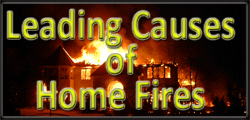Propane and Gas Grill Safety
The propane industry's ongoing commitment to providing consumers with the most effective ways to safely fill propane cylinders has led to the development of the Overfilling Prevention Device (OPD). States across the country, including Louisiana, have adopted National Fire Protection Association regulations requiring that all small propane cylinders (4-40 lbs.) be equipped with an OPD by April 1, 2002.
The Overfilling Prevention Device is another innovation from the propane industry that allows consumers to enjoy the many exceptional uses of propane in a safe, reliable manner. When an OPD-equipped cylinder is being filled, a valve within the cylinder closes when the designated liquid capacity of propane is reached. However, an OPD is a safety enhancement, not a primary filling device.
Propane cylinders manufactured after October 1998 already contain OPDs and are available in all 50 states. A unique triangular hand wheel that is used to open the valve on propane cylinders easily recognizes the OPD device. If a cylinder does not contain a triangular hand wheel, it is obsolete and cannot be refilled. Obsolete propane cylinders should never be abandoned or thrown in the trash. Local propane marketers should be contacted for proper disposal information.
The OPD device will provide consumers with additional peace of mind as they enjoy propane-fueled appliances such as gas grills. Based on a 1999 Barbecue Industry Association survey, at least three billion barbecue events take place each summer among the estimated 75 million households that own grills. Of those households, 60 percent own propane gas grills. Additional measures that consumers can take to ensure safe and enjoyable propane grilling include:
PROPANE GRILL DO'S
- Always follow all of the grill manufacturer's instructions and keep written materials and manuals in a safe, accessible place.
- When not in use, make sure all grill burner controls are turned off and that the valve cylinder is closed.
- Make sure the gas grill is shut off and cooled before covering your grill after use.
- Always use or store cylinders outdoors with the relief valve in direct contact with the vapor space, usually in an upright (vertical) position.
- When you fill or exchange your cylinder, have your supplier check for dents, damage, rust, or leaks. If you exchange your cylinder, these inspections are already completed on the full cylinder.
- After filling or exchanging, take your cylinder home immediately. Keep your vehicle ventilated and keep the cylinder valve closed and plugged or capped in accordance with the manufacturer's instructions.
- When your grill is not in use, cover disconnected hose-end fittings and burner air intakes with small plastic bags, or obtain protective fitting caps from your propane supplier to keep out dirt, insects, and moisture.
- If there is an uncontrollable release of gas or a fire, call the fire department immediately and move all people and pets away from the unit.
PROPANE GRILL DONT'S
- Do not smoke while handling the propane cylinder.
- Do not allow children to tamper or play with the cylinder or grill.
- Do not use, store, or transport your cylinder where it would be exposed to high temperatures. (This includes storing spare cylinders under or near the grill.)
Consumers can obtain additional information on OPD's by contacting their local propane marketers or the Louisiana Propane Gas Commission at 1-225-925-4895 or visit the National Propane Gas Association website at National Fire Protection Association.









